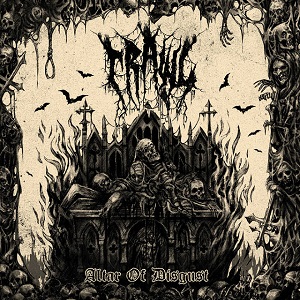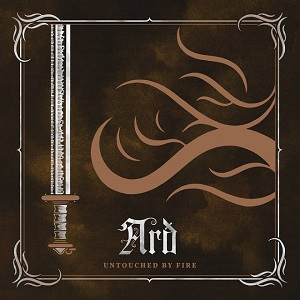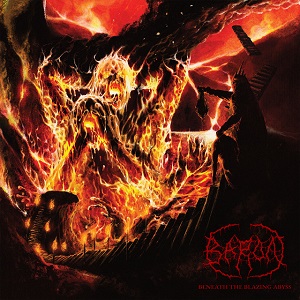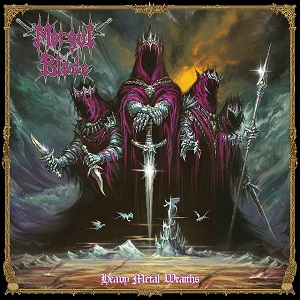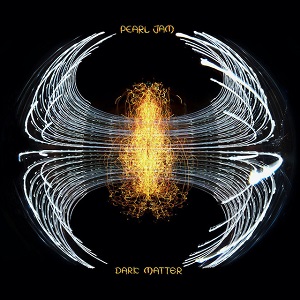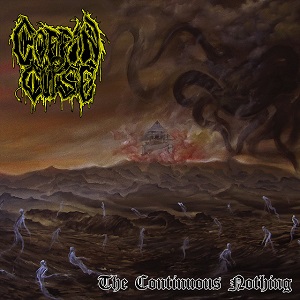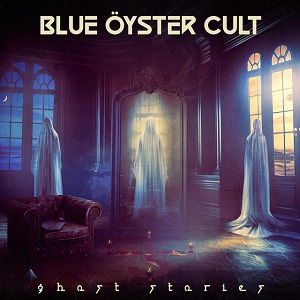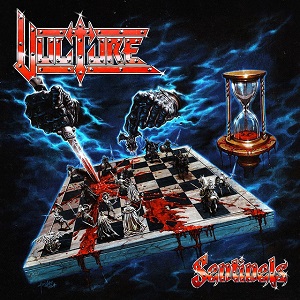TRIPTYKON’s Tom G. Warrior - "There Are People Who Are Very Critical Of Me And Don’t Believe Anything I Say"
April 2, 2011, 13 years ago
Thomas Gabriel Fischer also known as Tom G. Warrior – an unsurpassed extreme metal stalwart who is not too fond of tooting his horn and gets visibly shy if someone else tries to do that. A truly “all-or-nothing” musician, he had gone through the downfall of his most cherished band CELTIC FROST just to arise with a new endeavour called TRIPTYKON. Fischer’s musical merits are indisputable and the newly born band received critical and public acclaim upon the release of their first record Eparistera Daimones.
`
In this interview, Fischer told BraveWords.com about the fall and rise of his career, his collaborations with various musicians and shed light on some of his standpoints in life.

BraveWords.com: Triptykon’s first full-length album Eparistera Daimones is out now. How would you describe this record?
Fischer: "The album has a very complex history due to the demise of Celtic Frost. It’s a very personal album, because there’s a million feelings that are captured on it. It was a very important album creatively and personally. I had to restart my entire career at the age of 44-45. I basically wanted to settle in Celtic Frost and record albums with them. I lost everything and had to rebuild my career, rebuild a new band, get new recording deals, get new rehearsal room, get new equipment – basically start from scratch like a young musician and see if I can continue my career. In addition to that Celtic Frost meant everything to me, Celtic Frost was my life and yet I lost it. So there’s a million emotions on Triptykon’s album, there’s a lot of history on there. It’s very complex, there’s a lot of darkness, but also a lot of hope, a lot of energy.”
BraveWords.com: Where did the name for the album come from?
Fischer: "It’s from an old spell, but the occult meaning of it is just one side to me. It’s of course also a statement on the situation in Celtic Frost at the end. And to me yet another meaning – it’s a comment on the behavior of human beings on this planet. All my life I’ve felt unhappy with how human beings behave on this planet, the ignorance, how we destroy this planet, how we destroy each other, how we destroy the environment, the animals. All we do on this planet is provoke destruction. And the title of the album is basically an observation on human behaviour.”
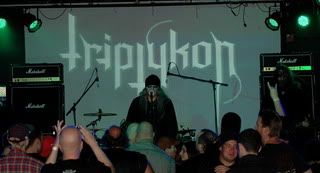
BraveWords.com: Out of all the bands that you have been a part of, would you say that you feel the most content now with Triptykon?
Fischer: "I feel very content, but it would be unfair to say that it’s the most content. There were moments in Celtic Frost when I was very happy, and of course I was very happy being in HELLHAMMER. I formed Hellhammer during an extremely difficult time in my life. Hellhammer was a replacement of a family that I didn’t have, Hellhammer was a replacement for an entire youth that I didn’t have. So even though my life was extremely difficult, having my friends around me in Hellhammer made me for a short time very happy. And it was the same then for Celtic Frost. So I am extremely happy in Triptykon now, I am happy to leave behind the ego-fighting that was a part of Celtic Frost at the end. But I felt happy in other bands before, it would be very unfair to say I’m happiest now.”
BraveWords.com: When you started your career with Hellhammer nobody accepted you or your music, and now you are such an influence to many people around the world. What has kept you going through all these years?
Fischer: "There are people who are very critical of me and don’t believe anything I say. But the reality is, what has kept me going is honesty. Everything I’ve ever created was always honest. Every album, every song I wrote – it was never a routine, it was never done according to a certain scheme or a recipe, it always reflected my feelings. Sometimes that yielded very unusual albums like Morbid Tales or To Mega Therion. Sometimes it yielded catastrophic albums, but it was always me, it was always my honest feelings. And maybe that’s the secret to me still being around. I see certain bands that, to me at least from the outside, it seems like they follow a routine and I don’t like that. We’re talking about music: music is something that should come from your innermost emotions. It shouldn’t be done according to a routine or a scheme, like because death metal is now the music of the hour – you do a death metal album as well and you have all the solos that you have to have. That’s not the way I write. Whatever is inside of me, I’ll try to convert it with my guitar into music. Sometimes I can connect to my audience, sometimes I can’t, but it’s always honest. It also makes it very unpredictable even for me. I can never predict whether my feelings will translate into good music and whether my feelings will connect with the feelings of the audience. It’s always kind of a gamble; you never know what’s gonna happen. And it also explains why I’ve never done the same album twice.”
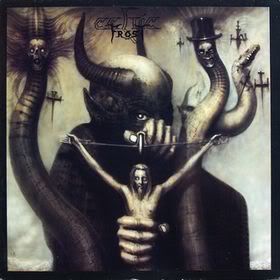
BraveWords.com: When you look back at your career, is there anything that you wish you could have done differently?
Fischer: "Oh there’s a million things. I’ve made plenty of mistakes and I am very very far from being perfect or from knowing what to do in every situation. I’ve made plenty of mistakes, but I also don’t think like that. I know it’s a waste of time. There’s no way I can go back and change some things, so I don’t think like that. What I do try is when I have made a mistake in the past and I realize it, I try to be honest to myself about it. I don’t try to push it away, but I try to actually think about it, to analyze it – why have I made this mistake, what misled me to do this and I try to improve. I try to never repeat that mistake, I try to find out what were the reasons and then try to avoid them next time. I try to become a better person. It sounds like a cliché, but it’s the only thing you can do. So if you’ve done something that you feel terrible about, the most positive thing you can gain from it is to avoid it next time, to at least learn from it. That’s my approach.”
BraveWords.com: You have done a lot of collaborations with other musicians. What was your favourite one?
Fischer: "Good question. (pause) I’m very proud and very happy with my vocals that I’ve done for DARK FORTRESS. I’m sure you wouldn’t expect that answer, but for some reason the vocals I did for a song by Dark Fortress two years ago came out exactly the way I wanted to sing, it was a vocal track I like very much. I’m also extremely proud to have shared the stage with Nocturno from DARKTHRONE. Nocturno and Darkthrone as a whole – these are people I have huge, tremendous respect for and to have shared a stage with them was amazing.”
BraveWords.com: You have collaborated mostly with extreme metal bands, naturally, but I also know that you’ve worked with Dave Grohl from FOO FIGHTERS.
Fischer: "I actually forgot about it (laughs). You’re right, I did that too.”
BraveWords.com: It was kind of unexpected to see.
Fischer: "Yeah, it was unexpected for me too and for a long time I didn’t know whether I should do it. Because to me it’s a two-sided thing. Dave Grohl moves in a world that’s very far away from mine. He moves in a very commercial world and I’m not a fan of that. I liked the very first Foo Fighters album that he recorded all by himself, that sounded completely underground. But the rest of his career is in a different universe than mine. And I was kinda hesitant to do it. The reasons he gave me sounded very convincing, so I did do it, but it’s not something I think about very often. I’ve never heard the whole album actually. I’m more proud of collaborations with unknown musicians: for example, working with many classical musicians on Celtic Frost’s albums or Triptykon’s album. Because that’s something that I really wanted to do in my life, it was extremely interesting and I learned an immense amount of things from working with such musicians. I produced the first CORONER demo, sang on it and wrote the lyrics. Those collaborations are much more important to me.”
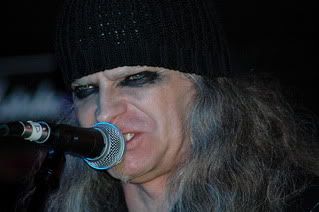
BraveWords.com: I have heard that you work with H.R.
Giger? What exactly do you do there?
Fischer: "Everything, I’m his assistant. I’m there about three times a week and whatever he will ask me to do, I do it. I owe Giger an immense amount of things. He is a very close friend and an extremely important mentor to me and also, I idolize him as an artist. He’s an artist of a capability far beyond mind and it’s a tremendous honour to have worked with him as an artist and I feel I owe him an endless amount of gratitude for that. This is also why I’m a very loyal assistant to him.”
BraveWords.com: Does working with him inspire your music?
Fischer: "Giger’s work has inspired my music long before I even knew him. I was a huge fan of his work since I was a child and discovered his work in the '70’s. My father had two books by Giger, his first books when he was completely unknown. I looked through his books and I was completely taken by what he was doing, by the darkness and the esthetics of it. And when I was in Hellhammer, I discovered that Martin Ain was also a fan of his work. And of course our idolization of his work was a part of darkness of our music, so he has influenced me long before I even got to know him.”
BraveWords.com: Do you believe in fate? In the sense that you had to leave Celtic Frost and deal with everything that followed in order to be the person you are today with Triptykon?
Fischer: "No, I don’t believe in fate. That probably disappoints a lot of people who project a lot of esoteric things in to me. I’m a person who lives very much in reality. I don’t believe anything to begin with. I either know or I don’t know – that’s my approach. I never felt the need to believe something. I like to learn: when I don’t know something – I try to find out. But I also have no problem to accept that as a human being I will never know everything. I don’t have to resort to God or whatever to compensate for that. I’m very aware that my little brain will never know everything in this universe and that’s just the way it is, it’s fine with me. So the next step is, of course, I don’t believe in fate, because that too is just an assumption. I do believe it was worth leaving Celtic Frost, it was probably the most difficult decision I had to take in my entire creative life. But I don’t think it was good, because of faith. I know it was good, because of what we’ve done with it. I could’ve left Celtic Frost and just stayed at home crying. But what I did was put all my energy in a new project and I did whatever I could to make this project good. I worked very hard to find good people, I worked very hard to write deep music and to record a fantastic album. And so with the result of that I can say yeah, it was good that I left Celtic Frost, eventually it turned into a good thing. But it has nothing to do with fate for me; it has to do with what we’ve made out of the situation.”
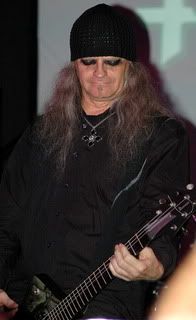
BraveWords.com: There are quite a few books dedicated to heavy music, where the authors often refer to you and your comments regarding many bands, since you were there from the very beginning as a fan. So, having such a great experience, what is your view on the world of heavy music today? Do we really need another SABBATH or METALLICA as a catalyst to move things forward?
Fischer: "Well if I had a choice, I would rather have another Sabbath than another Metallica (laughs). But in all honesty, of course Metallica were extremely important for the thrash metal scene and for extreme metal in general. By and large the music scene is exactly the same that it always has been. Even though record companies had disappeared largely and musicians have far more control, the same mechanisms still apply. There’s still a lot of lies, a lot of deception in the scene, a lot of fake musicians. There’s a lot of copying, a lot of unoriginality, but it’s been the same in the '70’s, the '80’s, the '90’s and now. It’s always been the same. What’s different is that there are more musicians than ever before, more bands and it’s much easier for you to record your albums with your own means, with your own computer, it’s much easier to promote yourself with the internet. It has given the musicians more power. But original bands have always been rare, even when heavy metal was really young in the late '60’s and early '70’s, there was always a flood of bands that tried to copy each other or tried to copy whoever was popular, but there was only a handful of bands that were truly innovative, truly original. And that has remained the same. And that’s not necessarily a criticism of musicians; it also has to do with the fact that it’s extremely difficult to create something new. And it’s probably more difficult now than it’s ever been, because in 40 or 50 years of heavy metal every riff has been written, every album has been made.”
BraveWords.com: You said that you write your music based on your personal emotions and experiences. Do you ever get any inspiration from positive experiences, or does it always have to be something dark and negative?
Fischer: "Strangely enough, yeah, it probably will have to be something dark. At one point in my life, many many years ago I wrote an album when I was happy and it was a disaster. The album was neither Celtic Frost, nor was it me, nor was it good, nor did it have any quality to it.”
BraveWords.com: Which album was that?
Fischer: "Cold Lake. An abomination of an album, the absolute low point of my career and that’s the only album I ever wrote when I was happy. I’ve talked with many other musicians, painters, writers and consensus seems to be that you’re most creative when you’re most desperate in your life. It’s something I think a lot of artists share for one reason or another and I don’t know why this is. I certainly don’t strive to be unhappy. I wanna be happy like everybody else, but my life has been at times very difficult, very often beyond my control and most of the time such periods resulted in very good music. I guess when there’s a flood of radical emotions inside of me, there’s a lot of inspiration to write something good, something deep. And when I’m happy, there’s just nothing I guess. It sounds absurd, but that’s at least the mechanism that’s inside of me.”
(All photos by Mark Gromen except To Mega Therion cover by H.R. Giger)


